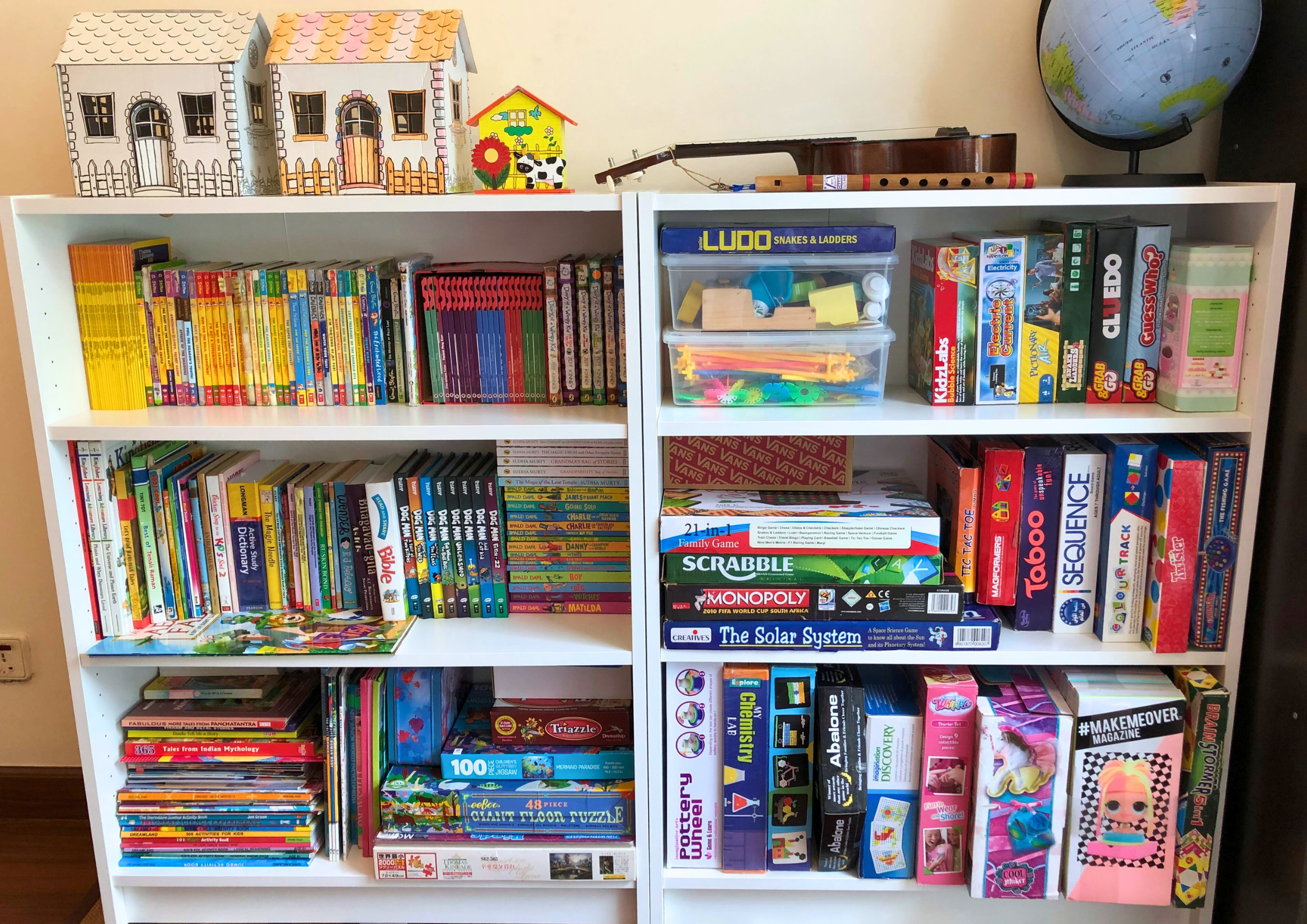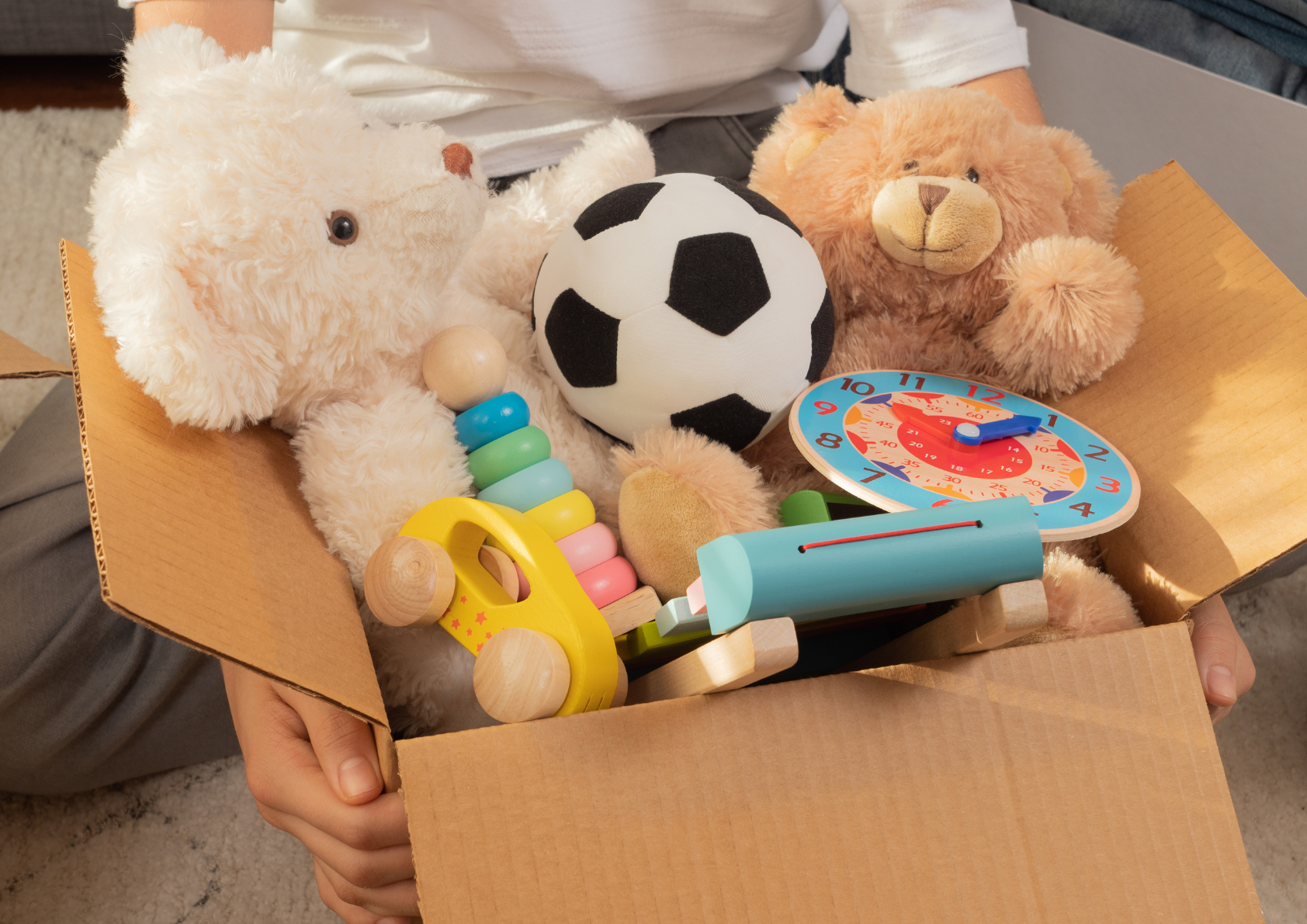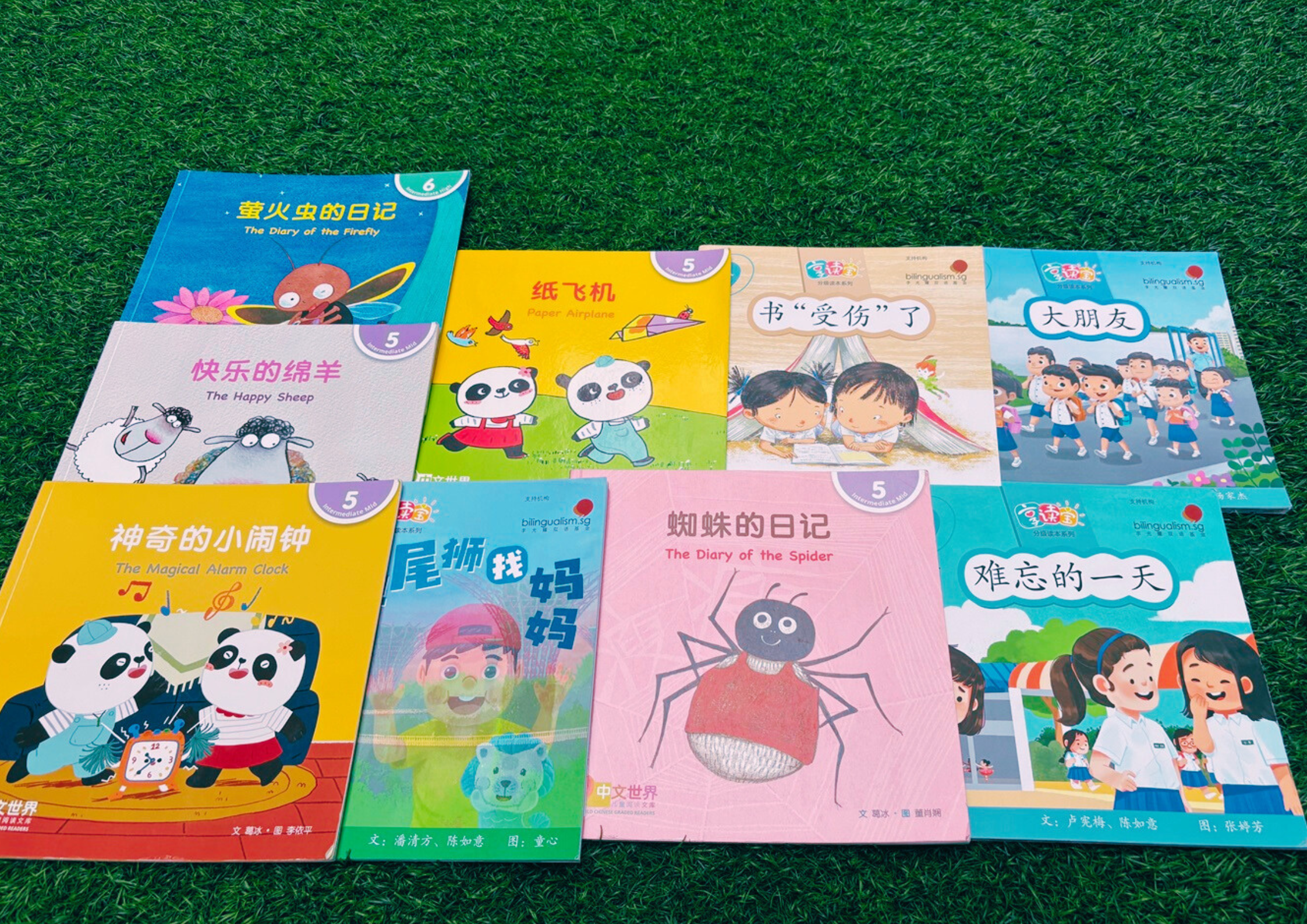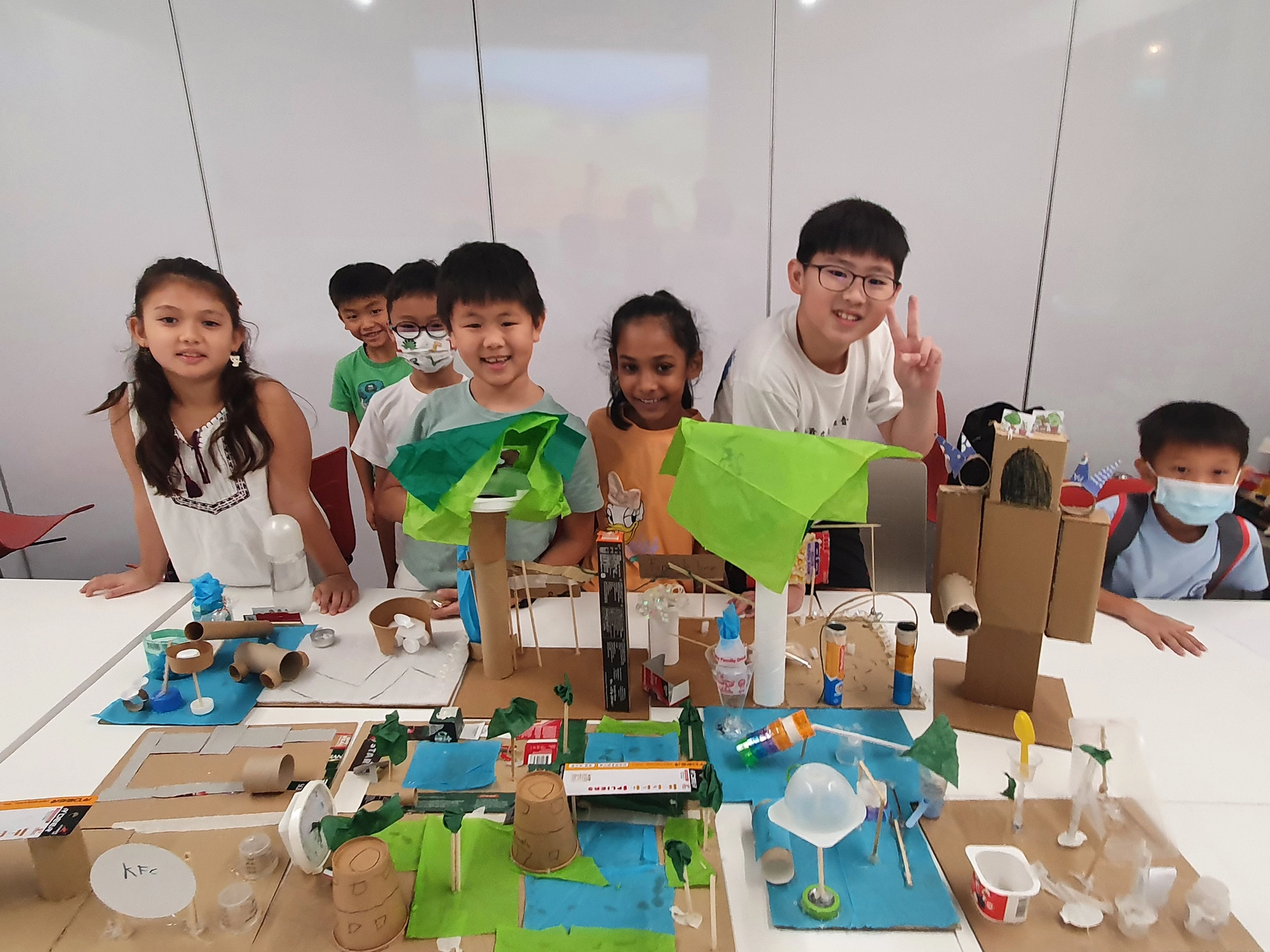- January 2, 2025
- 704
- Hot Tips , Skoop Nuggets
- 0 comment
What a KonMari consultant wants every parent to know.
It’s the school holidays! A perfect opportunity to declutter your home and organize your kids’ spaces, so they’re ready and refreshed to learn when school starts again.
In this exclusive interview, Skoop asked Martini Constance Lim, Founder of Minimize with Joy and Certified KonMari® Consultant, to share expert insights and practical tips on how to declutter effectively and create a supportive learning environment for your child at home.
Skoop: What sparked your journey into becoming a KonMari Consultant?
Martini: What inspired me was the opportunity to make a direct and meaningful impact on people’s lives. I’ve always found deep satisfaction in seeing the immediate positive effects of my work.
One moment that stayed with me was when a client hugged me after we cleared her home, and her sons immediately started playing in the new space. It was a simple but powerful reminder of why I do this— creating room for joy and real impact to people’s everyday life.

Skoop: You’ve worked with many families. Was there a particular moment or experience that made you realise how much tidying could impact a child’s mindset or behaviour?
Martini: Yes! One session I’ll always remember was with two brothers, aged 9 and 7. Their mum had just moved house and wanted them involved in the tidying. We went through everything, from clothes to toys, using the KonMari Method.
What made it special was how she trusted them to decide what to keep. Each boy took ownership of their own cabinet. That session reminded me that tidying isn’t just about a clean room. It’s about building confidence, responsibility, and independence in our kids.
Skoop: How does clutter affect kids’ learning?
Martini: I’ve seen how something as simple as not being able to find a pencil or book can throw a child off. Even when they’re ready to get started, having to stop and search for things breaks their focus.
If it happens often, it can get really frustrating and mentally tiring. These little disruptions add up and take their attention away from the actual learning.
And beyond that, clutter quietly adds to a child’s stress. Without even realising it, they can feel overstimulated or overwhelmed just by the mess around them.
Skoop: If our kids are always asking where their things are, should we be worried?
Martini: This is often more than just forgetfulness. When kids constantly lose track of their things, it slowly chips away at their independence. Each time we step in to help, they miss a chance to learn how to manage their space and to build the confidence that comes from doing it themselves.
Over time, this affects their motivation. Some kids feel frustrated or stuck, especially when they’re told to tidy up but don’t even know where to start. As they grow up, they may start seeing messy spaces as “normal,” not realising how it affects their focus, confidence, and emotional well-being.
Skoop: Why does a clutter-free space matter so much for children?
Martini: Tidying goes beyond just keeping things clean. When everything in your child’s room has a “home,” they don’t need to waste time rummaging for books, pencils, or homework. It’s one less thing to distract them and makes it easier to settle into learning mode.
The benefits go beyond schoolwork. Learning to tidy up also teaches important life skills, like responsibility, independence, and even self-care. Some of my adult clients told me they never learned how to organize as kids and now they’re overwhelmed by clutter. That is why it helps to start early, so our kids grow up with the skills they need.

Skoop: Kids aren’t always keen to tidy up. How can we motivate them?
Martini: I recommend keeping things simple by focusing on letting go of things that they are absolutely sure they do not need so they can clear their mind and mood first.
Tidying doesn’t have to be boring too. Let your child add personal touches to their space—a favourite plushie on the shelf, a special souvenir from a family trip, or even a corner filled with the things they love.
When they help create a space that reflects who they are, it becomes a place they feel good in and a way to express themselves and that positive feeling carries into how they show up in school and life.
Skoop: How can the KonMari method help create a better learning space for kids?
Martini: Start with creating an environment that feels inviting and organized. Here are five KonMari-inspired ways to help your child focus and learn better at home.
1. Start with intention
Before tidying, ask: What is this space for? Is it for learning, relaxing, creating—or all of them? When children set a clear intention for their space, it helps guide decisions during the tidying process for both parent and child.
Talk to them about how they want the space to feel and what they would do in it (Marie Kondo’s Kurashi at Home—“ideal life”). Encourage them to imagine how they’d like to spend time in the room.
For example, if they enjoy reading, they might want a cozy reading corner, if they love drawing or playing a musical instrument, a dedicated spot for those activities would be meaningful. Create a space that supports and nurtures their passions.
2. Declutter by keeping only what sparks joy
Keep only the items that serve the space’s purpose (remember the intention in step one). Rather than focusing on what to throw away, guide your child to choose what truly makes them feel happy.
Remove distractions like broken items or duplicates and anything that causes distraction or random clutter, including parents’ belongings that may have ended up in the child’s room. This nurtures decision-making, self-awareness and builds a sense of ownership.

3. Let go with gratitude
Saying goodbye to items that no longer serve a purpose, or are no longer age-appropriate, teaches children to practice both gratitude and generosity. Donating unused or outgrown things becomes a meaningful way to build emotional maturity, even from a young age, through the simple yet powerful act of letting go.
4. Organize by category and give each item a “Home”
Group similar items together like stationery, books, art supplies or sports gear. Give each category a “home” – a dedicated place where the items are stored. Keep similar items together such as pencils with pencil sharpeners, or paintbrushes with paint palettes.
Simple tools like trays, boxes, or dividers (easily found at places like Ikea, Daiso, or Japan Home) can make a big difference in keeping things tidy. When everything has its place, your child knows exactly where to find what they need and where to put it back.
5. Build habits to maintain it
Help them get into the habit of returning things to their “home” after use. Labels or fun stickers are especially helpful for younger kids. They act as gentle reminders and make tidying up feel less like a chore. These small, consistent habits go a long way. Over time, they build independence and help your child maintain a space that’s always “learning-ready.”
Skoop: Lastly, for parents who are strapped for time, what’s the easiest way to begin?
Focus on decluttering first. Start with large, visible items that are clearly no longer needed. Removing these bigger items will immediately make the space feel lighter and more manageable, giving both parents and child a sense of progress.
If there is more time, move on to drawers and cabinets. Once the decluttering is done, start organizing—one category at a time, like books, toys, or stationery. Finishing even one category can be incredibly motivating for both parent and child.
When a child’s space is calm and clutter-free, their mind feels clearer too. It becomes easier for them to settle down, focus, and feel more in control. A tidy space gives them room to think, create, and concentrate on what matters. And when they learn to take ownership of that space, that same confidence carries over into their learning.
If you would like more personalized help that works for your home and family, you can connect with Martini for an in-person or online consultation session here. Quote “Skoop” to get 20% off your first session (Min. 3 hours) – Valid till 31 Dec 2025








Add Comment